Ruby Princess inquiry final report scathing of NSW Health mistakes
The Australian Greens have called for a federal inquiry into the Ruby Princess, to allow federal biosecurity officials to testify on the failed immigration and biosecurity processes leading to the disaster.
- Feds threatened legal action against Ruby Princess inquiry
- Passengers ‘kept in the dark’ on Ruby Princess
THE Australian Greens have called for a federal inquiry into the Ruby Princess, to allow federal biosecurity officials to testify on the failed immigration and biosecurity processes leading to the disaster.
The move followed the release of the final report into the special Commission of Inquiry into the Ruby Princess debacle on Friday, which criticised the Commonwealth for refusing to allow federal officials testify in a State inquiry
Given the refusal, Greens leader Adam Bandt said it was only appropriate that a federal inquiry was convened to exmine the role of biosecurity officials in “the biggest screw up” of the pandemic.
“If the Federal Government wants to block federal biosecurity officials from being called before state inquiries, then they leave us with no choice,” he said.
“We need a federal inquiry into the Ruby Princess debacle.
“Of all the mistakes made through this pandemic, the Ruby Princess debacle stands as the biggest screw-up of them all.”
The inquiry into the debacle found NSW Health made a serious mistake when rating the Ruby Princess cruise ship as a low COVID-19 risk, a decision “as inexplicable as it is unjustifiable”.
But Commissioner Bret Walker SC did not recommend anyone should be sacked in his final report on the scandal that has been linked to 900 confirmed coronavirus infections and 28 deaths.
Mr Walker said a NSW Health expert panel deemed the Ruby Princess a low biosecurity risk, allowing nearly 2,700 people to leave the vessel at Circular Quay on March 19 without proper health checks.
That was despite pending coronavirus swabs, a decision the commissioner labelled “as inexplicable as it is unjustifiable.”
“It was a serious mistake,” he said.
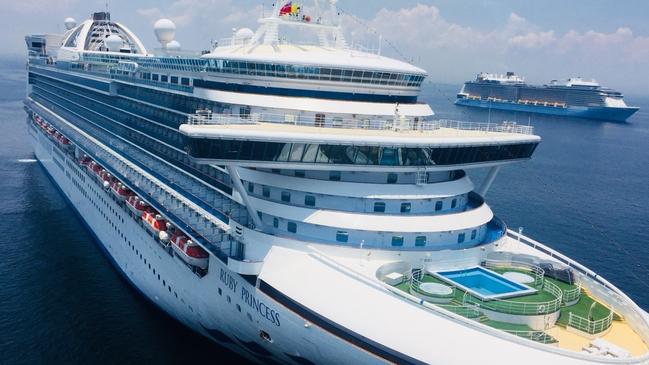
Mr Walker stressed that NSW Health made the operative decision to greenlight disembarkation, which was clumsily communicated to a federal department of agriculture biosecurity officer who granted the ship permission to dock.
“Neither the (Australian Border Force) nor any ABF officers played any part in the mishap,” Mr Walker said.
Mr Walker said it was “inexcusable” that NSW Health laboratory testing for the 15 coronavirus swabs was delayed because they were not flagged as a priority.
“Those swabs should have been tested immediately,” he said.
NSW Health workers did not board the ship to test sick guests while confining suspect cases to their cabins, something the commissioner condemned as a “serious failure.”
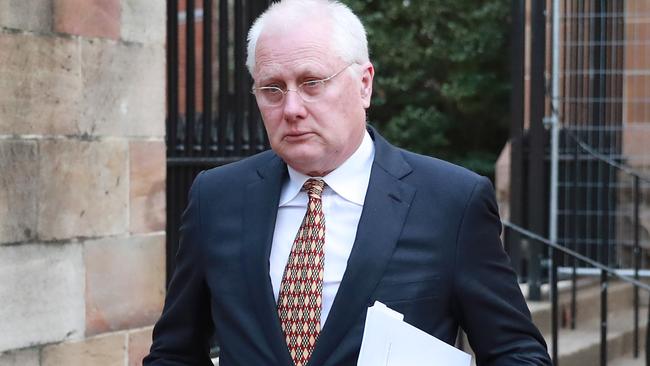
Mr Walker said the decision to allow passengers to onward travel interstate and internationally after disembarkation did not comply with state COVID-19 laws, and the government should have arranged suitable accommodation for all non NSW residents.
“Passengers were incorrectly advised by the ABF during the cruise that their 14-day period of self-isolation would commence from the date of departure from the last overseas port visited by the Ruby Princess, being Napier on 15 March,” Mr Walker said.
The commissioner said Carnival should have informed guests and crew there were suspect cases on board, and ordered them to isolate in their cabins.
And the ship’s doctor ought to have updated NSW Health about a significant spike in illnesses, which Mr Walker labelled an “oversight.”
The commissioner has also previously slammed the woefully inadequate COVID-19 testing rates during the ill-fated round trip to New Zealand.
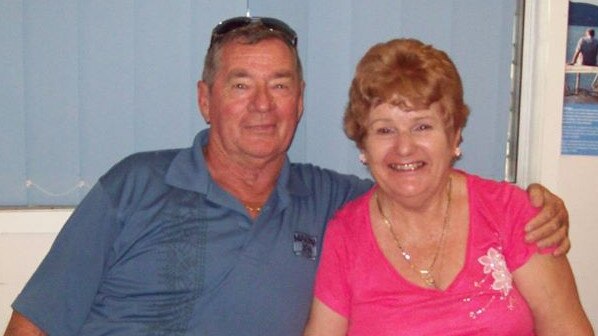
The report found the NSW Health expert panel had been guided by an outdated policy that did not take into account a March 10 guideline change from the Communicable Diseases Network of Australia, which included all international travel in COVID-19 suspect case criteria.
The panel’s ‘low risk’ rating also only took into account a subset of passengers with a fever and not a broader group who had a respiratory illness.
That’s despite the CDNA including acute respiratory disease without fever in the suspect COVID-19 case definition by early February.
“This was a serious and material error,” Mr Walker said.
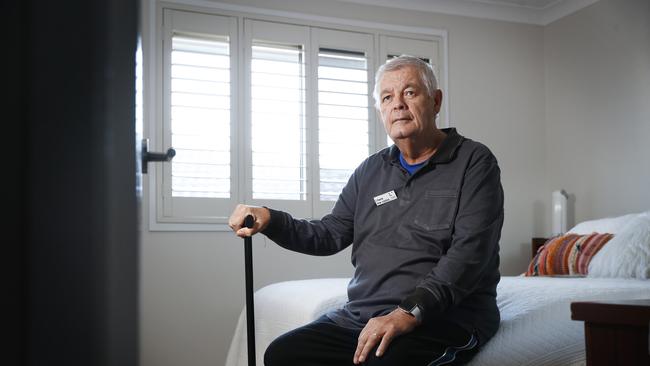
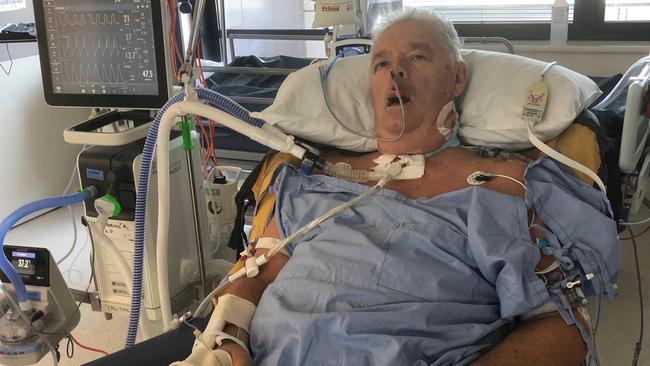
Panelists said that had this “oversight” been avoided, the ship’s biosecurity rating would have risen from low to medium risk, mandating health officers to conduct extensive screening before disembarkation.
But Mr Walker concluded there was never any justification for the panel’s graded-risk scale of low, medium and high, labelling it a “distraction.”
The commissioner said NSW Health’s pre-arrival risk assessment form should have been updated with the new CDNA guidelines, a shortcoming of the expert panel and Kelly-Anne Ressler – an epidemiologist who was reduced to tears while giving evidence.
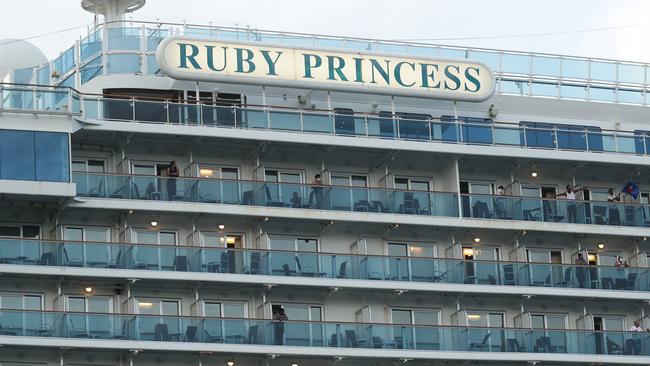
Mr Walker said the Biosecurity Act should mandate a requirement to update superseded human health information.
He said Carnival should have made the ship’s senior doctor, Ilse Von Watzdorf, aware of the CDNA suspect case definition changes as well.
The NSW Health expert panel’s pre-arrival assessment form stated 0.94 per cent of guests had influenza-like illness – just under the one per cent threshold that would have forced NSW Health to delay disembarkation until coronavirus test results came back.
Mr Walker said the utility of that one per cent threshold was “limited.”
The inquiry heard the acute respiratory disease log was given to the panellists some 24 hours before guests disembarked, and they should have requested an update late on March 18 or early on March 19.
This would have indicated that the rate of infection would have soared well over the arbitrary one per cent level by the time the vessel docked, the inquiry has heard.
NSW Health noted the sole member of the expert panel to read the ship’s acute respiratory disease log on March 18 – Professor Mark Ferson – admitted he probably only scanned it.
“The ARD log should have been read by all members of the expert panel,” Mr Walker said.
“These are all serious errors.”
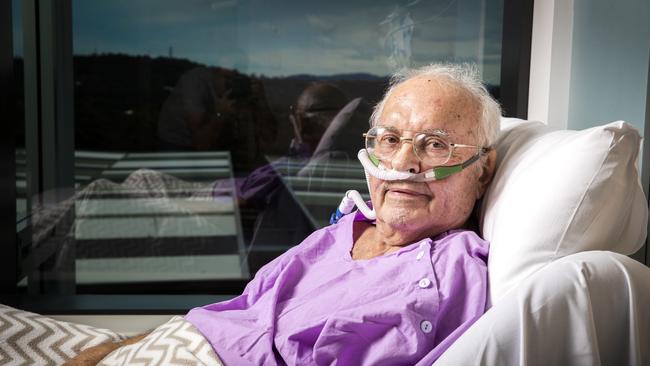
Ultimately Mr Walker said it is inappropriate and unhelpful to make recommendations to experts that in truth amount to no more than “do your job.”
“There are no ‘systemic’ failures to address. Put simply, despite the best efforts of all, some serious mistakes were made,” he said.
The commissioner recommended NSW biosecurity guidelines be reconsidered in light of his criticism that they regard a grant of permission to dock for cruise ships as the default position, which doesn’t satisfactorily reflect an appropriately precautionary public health approach.
Mr Walker added that state and federal government departments should have better awareness of their own and each other’s roles and responsibilities for human biosecurity, recommending more formal protocols for their interaction and communication around granting ships permission to berth.
The commissioner took aim at the Commonwealth after it threatened to launch High Court action last month to force him to withdraw a summons for Ms Joseph when the public servant refused to testify.
“Quite how this met the prime minister’s early assurance of full co-operation with the commission escapes me,” Mr Walker said.
“This waste of time and resources, when time, in particular, was always pressing, was most regrettable.”
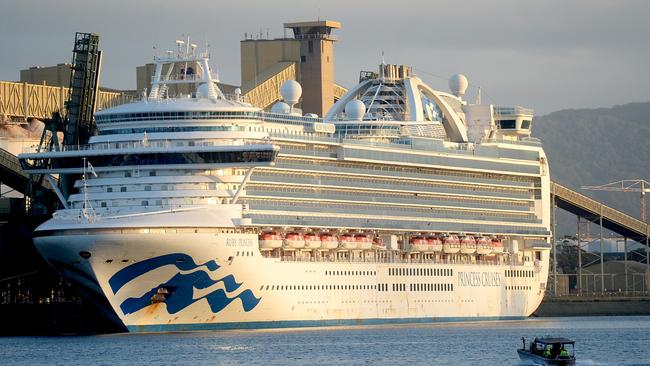
Five months after the fiasco unfolded, Mr Walker said it is almost certain that the total number of passengers who contracted COVID-19 will never be known.
But the total could be far greater than previously thought, given just under 40 per cent of Australian guests contracted the deadly disease and close to one third of all passengers - or around 1000 people on board - were foreigners.
The inquiry’s ability to track the number of confirmed COVID-19 cases in the international guests was “severely restricted” by limited testing rates overseas, the final report found.
Mr Walker said a significant number of overseas guests reported that they had tested positive for COVID-19 following their return home.
A further, substantial proportion indicated that they were symptomatic but frustratingly couldn’t access testing due to policies in their home countries at the time, particularly in the United Kingdom.
PM COURT ACTION ‘A FLY IN THE OINTMENT’
A report into the Ruby Princess debacle has slammed the Federal Government for refusing to participate in the inquiry, declaring it made a mockery of PM Scott Morrisons’s earlier pledge of “full co-operation”.
Lawyers for the federal government threatened to launch High Court action to force the Commission of Inquiry into the cruise ship disaster to withdraw a summons for a departmental worker who refused to testify.
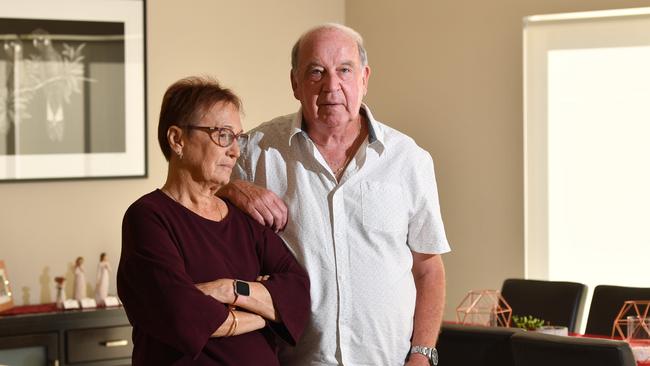
Commissioner Bret Walker SC had summoned Department of Agriculture worker Traci Joseph to give evidence about any role she played in granting the Ruby Princess permission to dock when she boarded the vessel in Sydney on March 19.
But instead of co-operation, the inquiry was informed that Mr Walker did not have the authority to issue a compulsory summons to Commonwealth workers.
In a letter written on July 11, the office of the Australian Government Solicitor wrote that the Commonwealth “may have no choice” but to “commence proceedings” to protect its “long-held position that summonses of the kind in issue are not validly binding on the Commonwealth and its employees”.
The inquiry was informed that the High Court had tentatively arranged for an urgent hearing to allow the Commonwealth to commence proceedings against the commissioner to determine the issue.
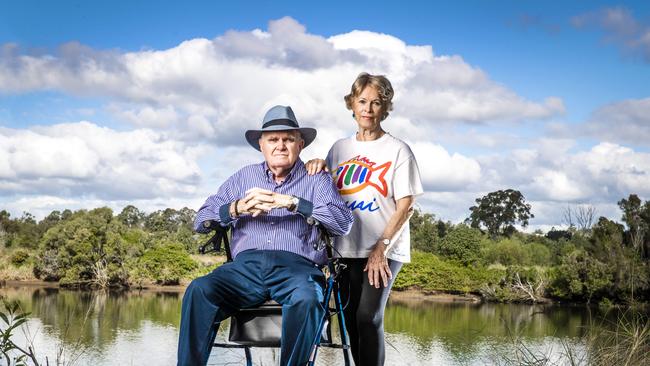
While Mr Walker later excused Ms Joseph, the actions were attacked in his report, describing as “the one fly in the ointment”. “A Summons to a Commonwealth officer to attend and give evidence about the grant pratique for the Ruby Princess was met with steps towards proceedings in the High Court of Australia,” the report said. “Quite how this (action) met the Prime Minister’s early assurance of full co-operation ... escapes me. This waste of time and resources, when time, in particular, was always pressing, was most regrettable.” The Commonwealth provided four voluntary statements to the Commission — one praised by Counsel Assisting for its detail, along with correspondence, policy and operational documents.
VICTIMS’ SINKING HOPE FOR JUSTICE
Jackie Grace blames the inexcusable “stuff-ups” of NSW Health for destroying her father’s life and said the cruise operator is “every bit as accountable”.
“If Dad’s swab had been tested when he first fell ill on the second day of the cruise then maybe he wouldn’t have gotten so sick,” Ms Grace said after learning of the findings.
“Maybe he wouldn’t have been in a coma for three weeks, or six weeks on a ventilator, maybe we would have our old dad back and not have to see him struggle every day.”
Henry Karpik became the seventh confirmed COVID-19 case from the ill-fated cruise ship and narrowly escaped becoming another death.
The 72-year-old fell ill early on the voyage and was told he tested negative for COVID-19 but was suffering from influenza A. The inquiry found it was “inexcusable” that NSW Health laboratory testing of 15 swabs was delayed because they were not flagged as a priority.
Ms Grace believes that treating her dad and other sick passengers as “low risk” was a fatal and inexcusable mistake.
“With 120 passengers so sick on the ship, how can they assess the cruise as ‘low risk’,” she said.
“Low risk? Do nothing? That’s what’s so heartbreaking, nothing was done to help my father or save the 28 lives lost.”
Ms Grace was upset there had not been more mention of the Ruby Princess operators.
“It’s not just about how the passengers embarked and disembarked,” she said.
“How were they cared for on board? Who’s asking those questions and where are the answers to those questions? They had seriously ill passengers on board. If they had the proper care on board then maybe 28 families would still have their loved ones and I would have all of my Dad back and not just his ghost.”
Ray and Doreen Hardimon from Lethbridge Park were on the Ruby Princess with their grandson Ben and his finance Chanese Pinta.
All but Ray caught COVID-19. Mrs Hardimon, at age 75, fell very ill for five weeks. “They couldn’t get us off quick enough and we should not have been allowed off that ship, we should have all been quarantined,” she said.
Mrs Hardimon said her family has joined a class action with Shine Lawyers.
“I know money can’t buy loved ones back, people have lost loved ones but I just want justice to be done,” she said.
Rona and Michael Dobrin of Bellevue Hill both suffered through COVID-19. “I always blamed NSW Health,” Mrs Dobrin, 75 said.
“They also passed the buck to Border Force who were not in charge of health. We got in at 2am, the (swabs) should have been the first thing off, they could have had people working to get the results before anyone got off the boat.
“I blame the bloke at the top,” she said of NSW Health Minister Brad Hazzard.
Originally published as Ruby Princess inquiry final report scathing of NSW Health mistakes
